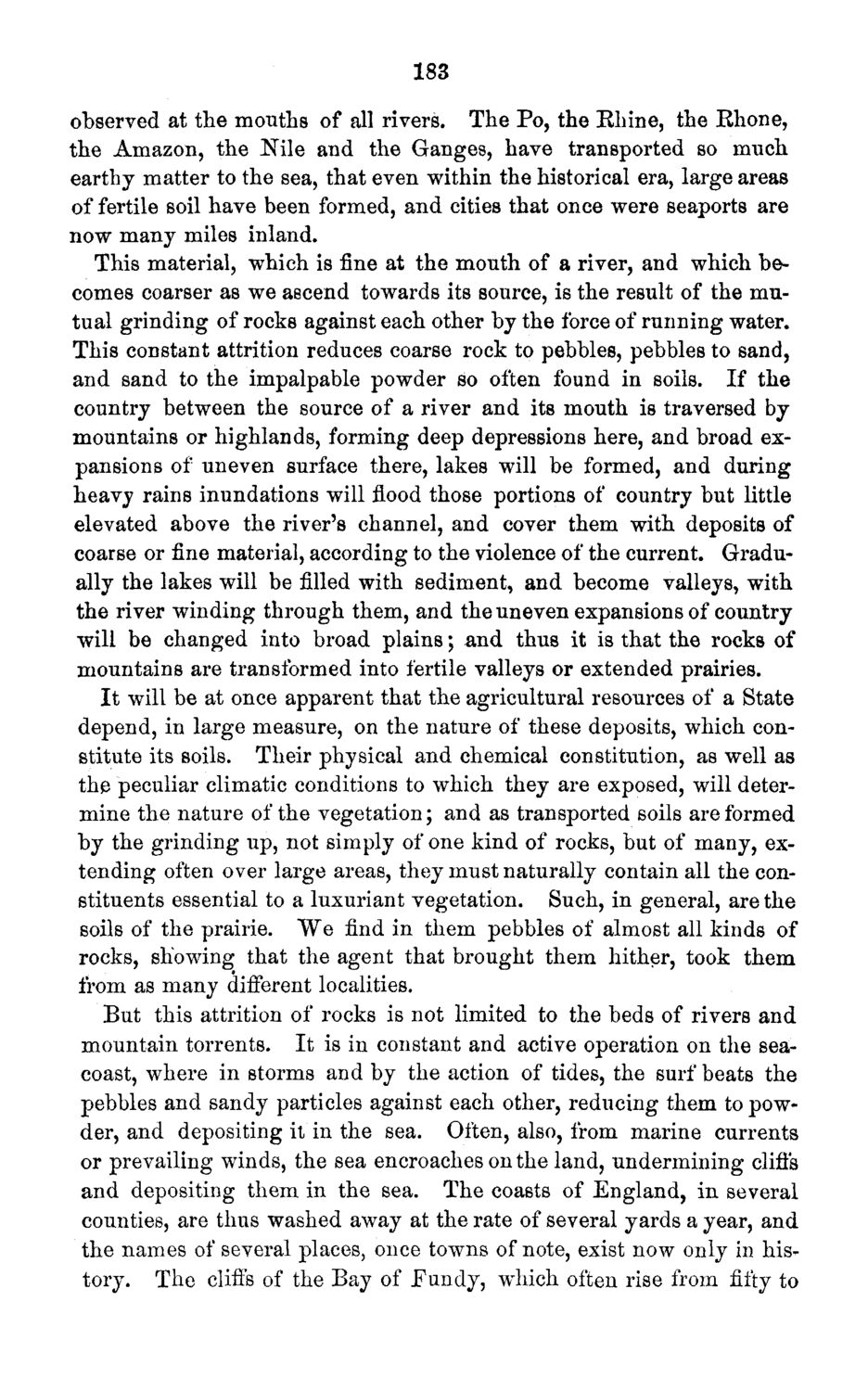| |
| |
Caption: Board of Trustees Minutes - 1871
This is a reduced-resolution page image for fast online browsing.

EXTRACTED TEXT FROM PAGE:
183 observed at the months of all rivers. The Po, the Ehine, the Rhone, the Amazon, the Nile and the Ganges, have transported so much earthy matter to the sea, that even within the historical era, large areas of fertile soil have been formed, and cities that once were seaports are now many miles inland. This material, which is fine at the mouth of a river, and which becomes coarser as we ascend towards its source, is the result of the mutual grinding of rocks against each other by the force of running water. This constant attrition reduces coarse rock to pebbles, pebbles to sand, and sand to the impalpable powder so often found in soils. If the country between the source of a river and its mouth is traversed by mountains or highlands, forming deep depressions here, and broad expansions of uneven surface there, lakes will be formed, and during heavy rains inundations will flood those portions of country but little elevated above the river's channel, and cover them with deposits of coarse or fine material, according to the violence of the current. Gradually the lakes will be filled with sediment, and become valleys, with the river winding through them, and the uneven expansions of country will be changed into broad plains; and thus it is that the rocks of mountains are transformed into fertile valleys or extended prairies. It will be at once apparent that the agricultural resources of a State depend, in large measure, on the nature of these deposits, which constitute its soils. Their physical and chemical constitution, as well as the peculiar climatic conditions to which they are exposed, will determine the nature of the vegetation; and as transported soils are formed by the grinding up, not simply of one kind of rocks, but of many, extending often over large areas, they must naturally contain all the constituents essential to a luxuriant vegetation. Such, in general, are the soils of the prairie. We find in them pebbles of almost all kinds of rocks, showing that the agent that brought them hither, took them from as many different localities. But this attrition of rocks is not limited to the beds of rivers and mountain torrents. It is in constant and active operation on the seacoast, where in storms and by the action of tides, the surf beats the pebbles and sandy particles against each other, reducing them to powder, and depositing it in the sea. Often, also, from marine currents or prevailing winds, the sea encroaches on the land, undermining cliffs and depositing them in the sea. The coasts of England, in several counties, are thus washed away at the rate of several yards a year, and the names of several places, once towns of note, exist now only in history. The cliffs of the Bay of Fundy, which often rise from fifty to
| |